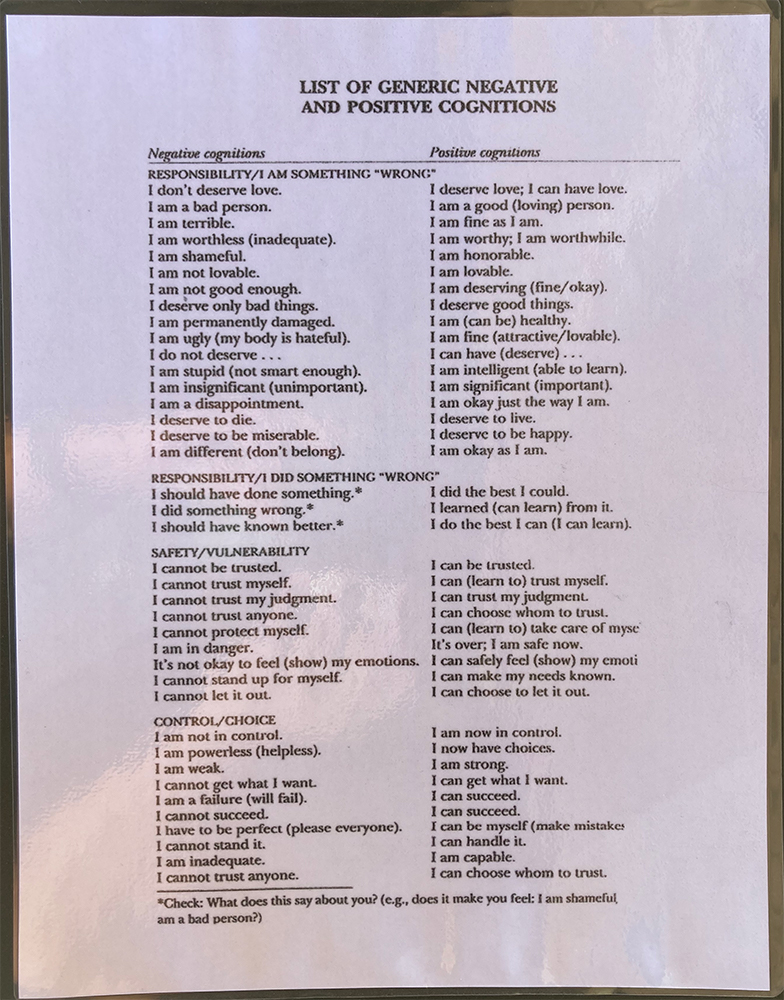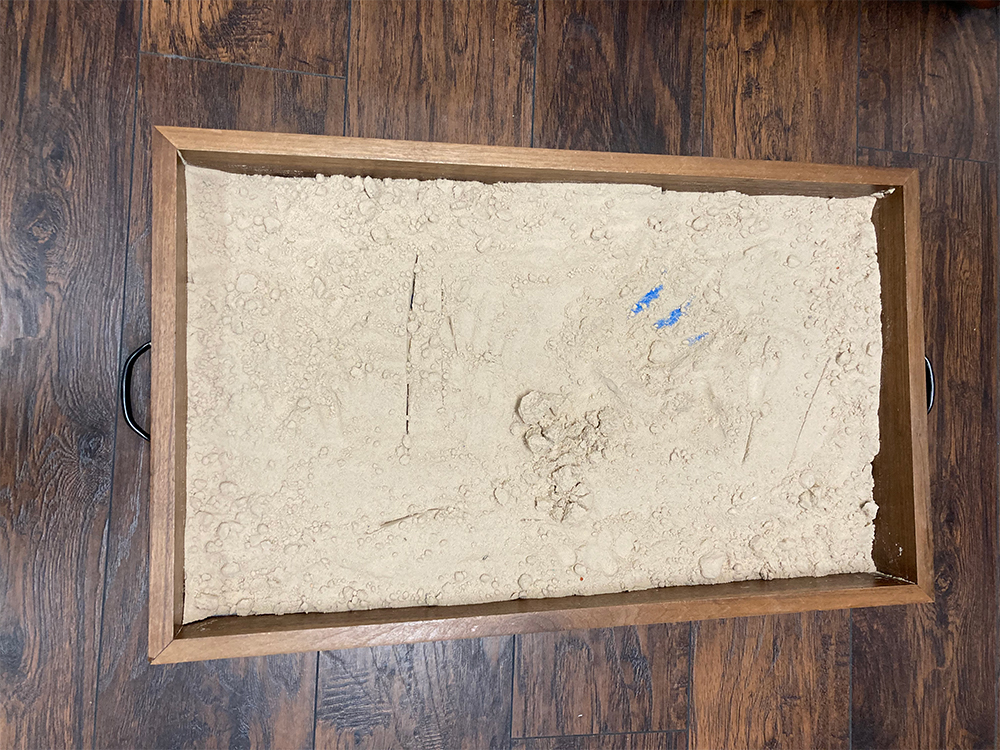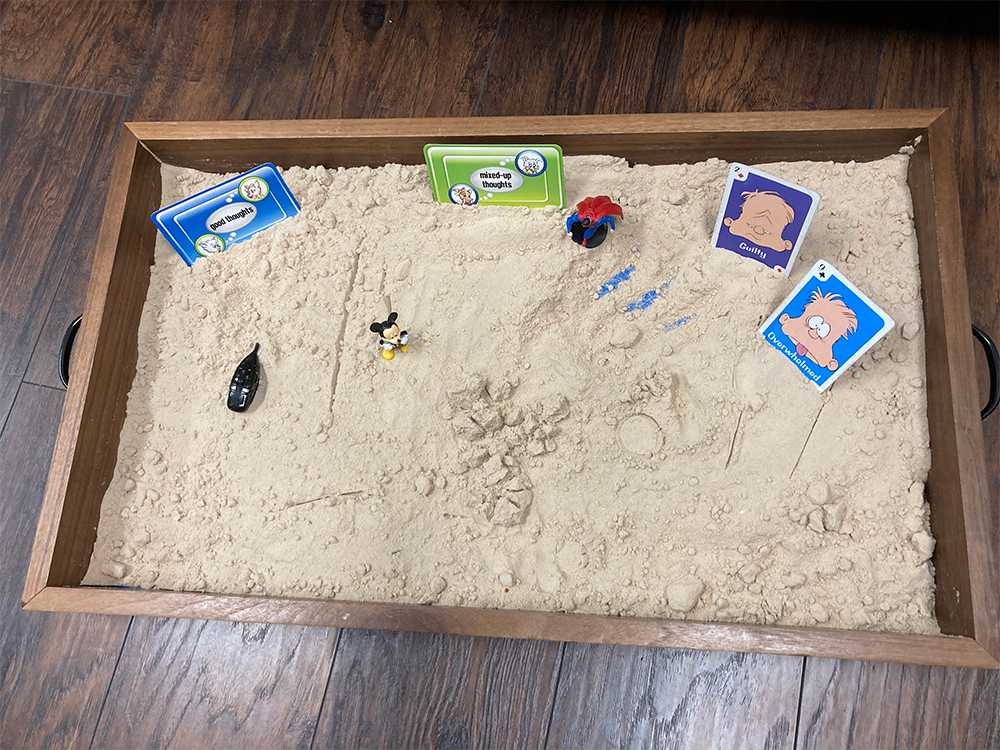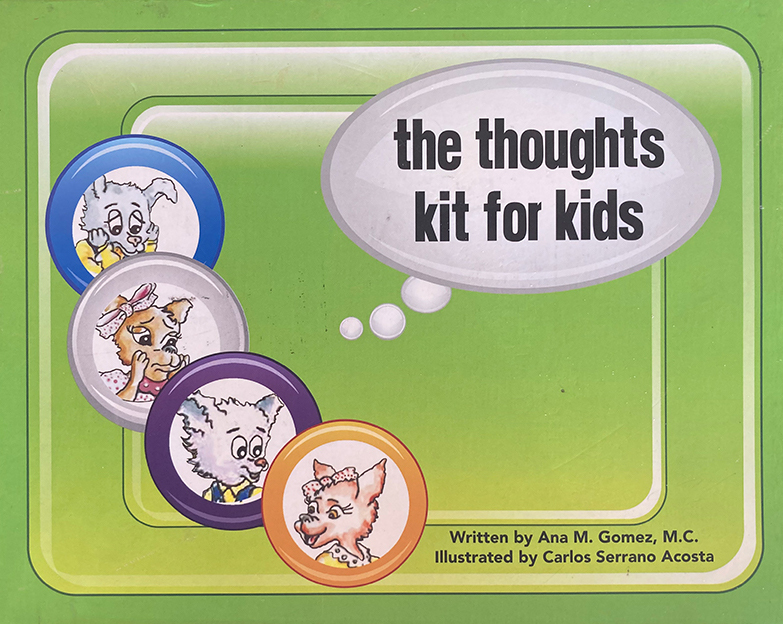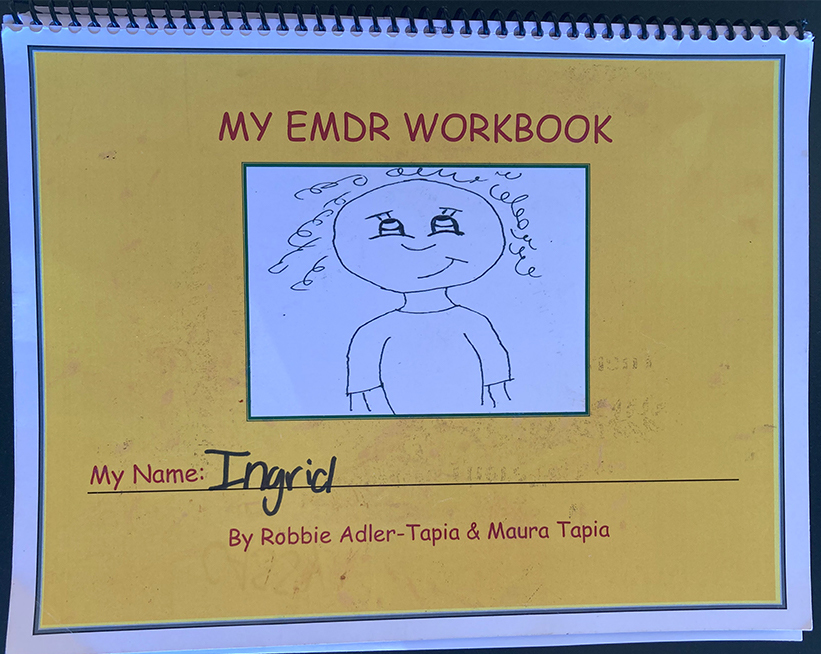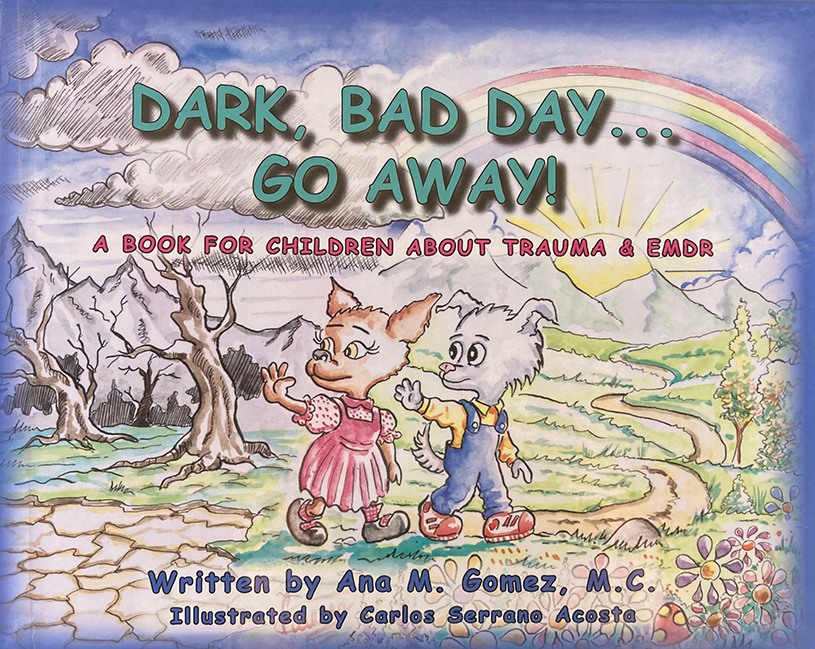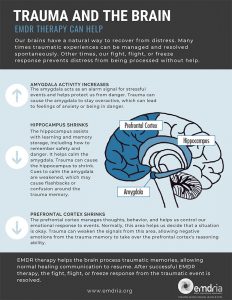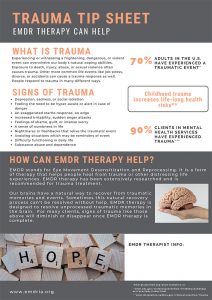- Have you ever had a memory that you re-live or replay over and over?
- Are you the victim of bullying?
- Did you experience a life event that was traumatic?
- Have you had medical procedures that were so difficult you can’t forget them?
- Have you had a sports injury that healed physically, but your mental game was not the same?
EMDR Therapy

What is EMDR Therapy?
EMDR stands for Eye Movement Desensitization and Reprocessing. It is a form of therapy that helps people heal from trauma or other distressing life experiences. EMDR therapy has been extensively researched and has demonstrated effectiveness for trauma. The research also shows that is it much more than a treatment for PTSD and can treat a wide variety of other disorders.
How does EMDR work?
Our brains have a natural way to recover from traumatic memories and events. This process involves communication between the amygdala (the alarm signal for stressful events), the hippocampus (which assists with learning, including memories about safety and danger) and the prefrontal cortex (which analyzes and controls behavior and emotion). Stress responses are part of our natural fight, flight, or freeze instincts. When distress from a disturbing event remains, the upsetting images, thoughts, and emotions may create feelings of overwhelm of being back in that moment or of being frozen in time. EMDR therapy helps the brain process these memories and allows normal healing to resume. The experience is still remembered but the fight, flight, or freeze response is resolved.
EMDR a powerful technique that helps people to identify negative beliefs they have about themselves and to replace them with more balanced, truthful or adaptive beliefs about themselves and the world they live in. EMDR uses eye movements, tapping, or sound as bilateral stimulation to help the brain to reactive it’s natural healing process. For many clients, after completing EMDR, when they remember the distressing life experience, they no longer have the emotional response or negative belief associated with that particular memory.
Can children and teens benefit from EMDR Therapy?
Yes! EMDR is appropriate for all ages, adults, teens and children. When treating a child or a teen, our therapists will use language that is appropriate for the age. We incorporate art, picture books and a sand tray as needed. For children we call it, “Eyes Moving to Digest and Recover” (Ana M. Gomez). We explain it like this, when your brain is full of bad memories or experiences, it needs to digest those memories, just like your stomach digests food. It breaks the memories down into smaller pieces and keeps what is good and healthy for you and gets rid of what is bad for you.
Do I have to have a diagnosis of PTSD to benefit from EMDR?
No, this powerful technique is highly effective for a wide range of disorders including chronic pain, phobias, depression, panic attacks, eating disorders, poor self-image, stress, worry, stage fright, performance anxiety, recovery from abuse and traumatic incidents.
What makes EMDR different from other types of therapy?
EMDR can be a great way for someone to process something, even if they can’t put words to the experience. It focuses on the emotions and the physical feelings and not just the narrative of the event. EMDR takes into account the mind body connection and treats the person as a whole.
Can I do talk therapy while participating in EMDR therapy?
Yes! If you already have a therapist who recommended EMDR, you can continue to see that person while you are in EMDR therapy. Often, we recommend having a break between EMDR sessions to just talk if needed.
Is EMDR right for me or my family?
Many patients who have made slow progress in the past, or who have not benefited from more traditional therapies say that with EMDR they have finally found something that works for them.
Call (408) 628-0532 now to schedule an assessment to see if EMDR is right for you! Campbell Teen & Family Therapy, Inc. (CTFT) is proud to provide services for Campbell, San Jose and the entire Bay Area!
